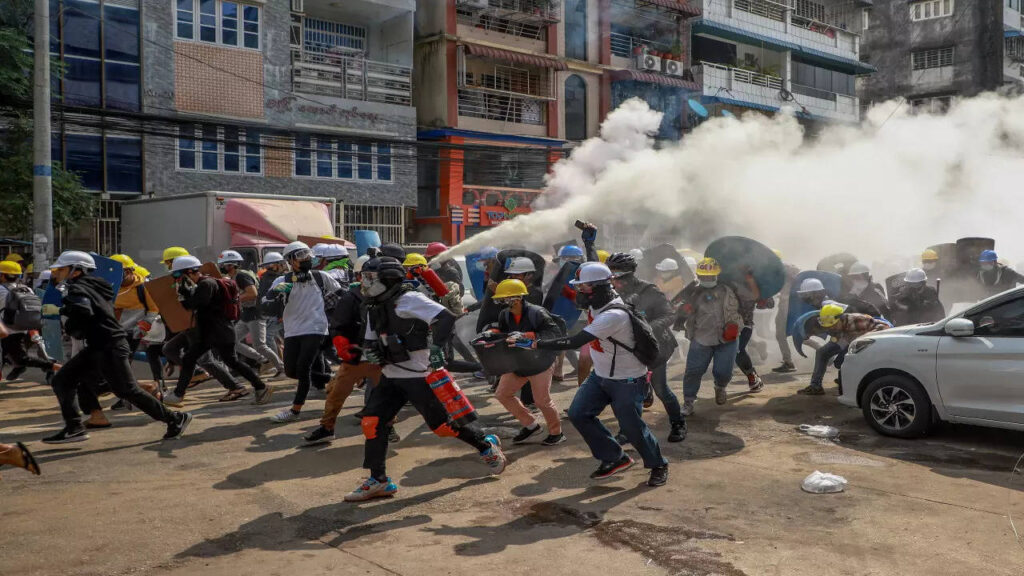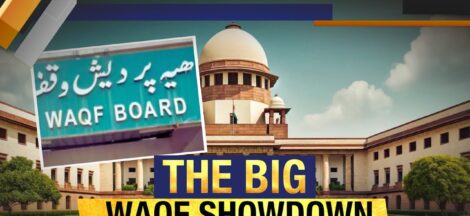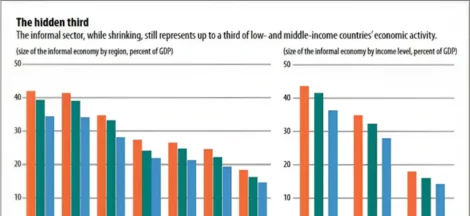By Satyaki Chakraborty
On the eve of the fourth anniversary of the military coup in Myanmar, the ruling junta has floated the proposal to hold the national elections to form a new government in the country which is witnessing civil war between the junta and the forces of democracy for the last four years.
The army coup took place on February 1, 2021 after removing the democratically elected government of Aung San SuuKyi whose party won the elections held in 2020. In the last one year, the ruling junta faced big reverses in its battle with the rebels including SuuKyi supporters. In fact in the recent weeks, two provinces were taken control by the rebel forces including one on the border with China. China organized a truce in one province between the rebel forces and the army giving full control of the administration to the rebels.
The proposal for elections has not found favour from the rebel forces including the pro- democracy movement of SuuKyi since the anti-junta forces are confident of full victory in the coming months. They want complete removal of the junta from the administration and the formation of a government of the representatives of three constituents of the anti junta movement as also civil society people.
Southeast Asian nations have told Myanmar’s military government that its plan to hold an election amid an escalating civil war should not be its priority, urging it to start dialogue and end hostilities immediately.
The foreign ministers of the 10 nation Association of Southeast Asian Nations (ASEAN) last week called on the warring sides in member nation Myanmar to stop the fighting and told its representative to allow unhindered humanitarian access. The NGOs including the UN agencies have been complaining that the ruling junta is not allowing free access to their staff to treat the wounded and distribute food materials to the displaced persons.
“We said the election has to be inclusive. The election cannot be in isolation, it has to involve all stakeholders,” Malaysian foreign minister said after the ASEAN conference. “We told them the election is not our priority. Our priority is to stop the killings in Myanmar and then proceed with the follow up political dialogue.’
Malaysia, chair of the 10-member bloc this year, announced the appointment of former diplomat Othman Hashim as special envoy on the crisis in Myanmar, where the United Nations says humanitarian needs are at “alarming levels”, with nearly 20 million people – more than a third of the population – needing help.
Malaysian foreign minister said Hashim would visit Myanmar “soon” to convince all sides in Myanmar to implement ASEAN’s five-point peace plan, which has made no progress since it was unveiled months after the coup. Hasan said the meeting also discussed the likely implications of the second term of incoming US President Donald Trump on the region amid its rivalry with China. He said the ministers raised concerns that competition between the two superpowers may increase regional tensions. He said ASEAN ministers stressed the urgency to bolster regional unity and make economic integration a top priority amid the global uncertainties.
Interestingly, the ASEAN members including Vietnam took note of the aggressive moves of China in South China Sea in recent weeks and underlined the need to talk to China jointly. Philippines which has been most affected by Chinese incursions in its territorial waters, was most angry and the country called on others to take a strong stand on the South China issue with Chinese government.
Simultaneously, the ASEAN members took note of China’s meddling in Myanmar’s internal turmoil by acting as a mediator by organizing truce between the rebels and the army in the provinces bordering it. In fact ,China has scored a major diplomatic victory in Myanmar by helping the conclusion of a truce between the ruling military junta and the Myanmar National Democratic Alliance Army (MNDAA) in the provinces bordering China. The MNDAA rebels took control of large areas around the border by driving out the junta troops last month. China was negotiating a deal as the mediator for the two weeks and it was finally announced in the middle of January.
The Myanmar war began from February 1, 2021 after the military took over power in the country overthrowing the elected government of Aung San SuuKyi. It is the second such pact in little over a year, a previous one in January 2024 not having been honoured by either side. The new ceasefire agreement brokered by China gives the Chinese government big advantage in reshaping the nature of the future government in this neighbouring country where China has big investments. Among the other big powers, US and the EU members have imposed sanctions against the Junta government for its undemocratic actions while India, while keeping relations, have not been too close to the regime. India also have very little contacts with the rebel groups.
China, on the other hand, has not taken any action against the military regime but at the same time called upon them to have negotiations with the rebels and the SuuKyi supporters of the Movement for Democracy. In the provinces bordering China, the rebels got assistance from the Beijing authorities also. In all, China is most advantageously placed in Myanmar now in respect of its relationship with all stakeholders.
China has a big stake in ensuring stability in Myanmar in view of protecting its large investments in infrastructure sector. Chinese spokesperson said on after the ceasefire agreement ‘We hope that all parties will maintain the momentum of ceasefire and peace talks, earnestly implement existing common understandings, take the initiative in de-escalating the situation on the ground and further negotiate and settle relevant issues through dialogue.”
On February 1 next, the civil war enters its fifth year. Though the junta denies, knowledgeable sources point out that the junta has lost more than seventy per cent of the land area to the rebels including two highly prosperous provinces. Many junta troops in many bordering areas have defected There is demoralization in its ranks. The junta is also looking for a face saving solution. The election idea was floated just to show that the army general are ready to hand over power to the elected representatives. Under such environment, the envoy of the ASEAN bloc Othman Hashim will begin discussions for truce on the basis of ASEAN’s five point peace formula. The coming meeting of the envoy in February with all stake holders is being watched with big interest. (IPA Service)




 Budget 2025-26: The ‘What’, ‘Why’ And ‘How’ Of Boosting Consumption For Growth
Budget 2025-26: The ‘What’, ‘Why’ And ‘How’ Of Boosting Consumption For Growth 